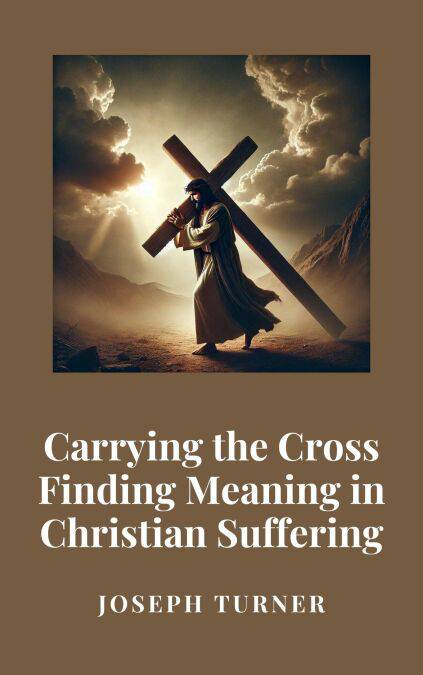
- Retrait gratuit dans votre magasin Club
- 7.000.000 titres dans notre catalogue
- Payer en toute sécurité
- Toujours un magasin près de chez vous
- Retrait gratuit dans votre magasin Club
- 7.000.0000 titres dans notre catalogue
- Payer en toute sécurité
- Toujours un magasin près de chez vous
Description
The cross, a brutal instrument of Roman execution, stood as a stark contradiction to the messianic expectations of first-century Jews. The very notion of a crucified Messiah was, as St. Paul so eloquently put it, a "stumbling block to Jews and foolishness to Gentiles" (1 Corinthians 1:23). This "scandalon," this point of offense, was not merely a matter of social discomfort; it struck at the heart of prevailing understandings of power, divinity, and salvation. To the Jews, a Messiah was to be a triumphant king, a liberator who would restore Israel's glory. The cross, a symbol of weakness and defeat, shattered this expectation. The Torah itself, in Deuteronomy 21:23, declared that "anyone who is hanged on a tree is under God's curse," making the idea of a crucified Messiah a theological impossibility for many.
The Passion narratives, found in the Gospels of Matthew, Mark, Luke, and John, form the bedrock of Christian understanding of suffering. They are not merely historical accounts; they are profound theological meditations on the nature of God's love and the path to salvation. The sheer detail with which the Gospels recount Jesus's suffering—from the agony in the Garden of Gethsemane to the final cry on the cross—underscores its central importance. The dates, spanning from the Last Supper, likely a Passover meal, to the crucifixion on Good Friday, are critical. The places, from the Upper Room to the Garden of Gethsemane, to the Praetorium, to Golgotha, are imbued with sacred significance. The persons, from Judas' betrayal to Peter's denial, to Pilate's reluctant condemnation, to the women who remained faithful, are all vital to understanding the narrative's depth.
The concept of suffering as participation in Christ's redemption is a profound and often challenging aspect of Christian theology. It moves beyond simply acknowledging Christ's suffering as an example, and delves into the idea that our own suffering can be united with his, contributing to the ongoing work of salvation. This idea is perhaps most clearly articulated in St. Paul's letter to the Colossians: "Now I rejoice in my sufferings for your sake, and in my flesh I am filling up what is lacking in the afflictions of Christ on behalf of his body, which is the church" (Colossians 1:24). This verse has been the subject of much theological reflection, and it is crucial to understand it within its proper context. St. Paul is not suggesting that Christ's sacrifice was incomplete. Rather, he is emphasizing the ongoing nature of Christ's redemptive work, which extends through the Church, his body. The suffering of Christians, when offered in union with Christ, becomes a means of participating in this work.
Spécifications
Parties prenantes
- Auteur(s) :
- Editeur:
Contenu
- Langue:
- Anglais
Caractéristiques
- EAN:
- 9798230540519
- Date de parution :
- 21-02-25
- Format:
- Ebook
- Protection digitale:
- /
- Format numérique:
- ePub

Les avis
Nous publions uniquement les avis qui respectent les conditions requises. Consultez nos conditions pour les avis.






